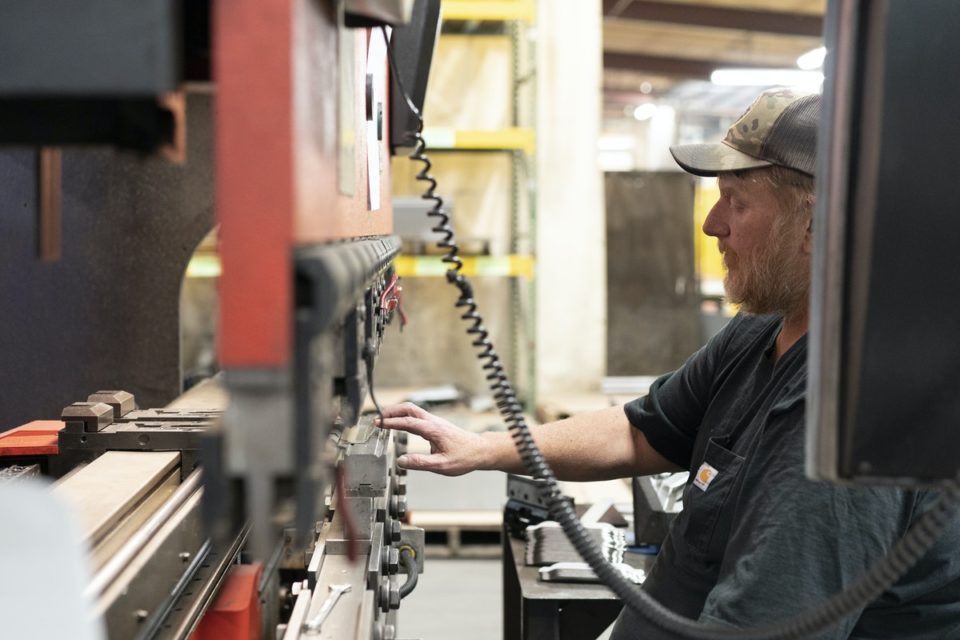Small Businesses Are Still Grappling with Supply Chain Disruptions

Story by Lindsay Cates, U.S. Chamber of Commerce
As the country quickly approaches year three of the COVID-19 pandemic, empty grocery store shelves, delayed packages, and an insufficient supply of everything from refrigerators to microchips has become commonplace.
While these shortages have a major impact on consumers (supply chain disruptions are leading to price inflation amid a growing shortage of goods) small businesses are withstanding the worst of the disruptions.
According to the Q4 2021 U.S. Chamber and MetLife Small Business Index, 61% of small businesses said their supply chains have been disrupted by the pandemic and worker shortages. As a result, 63% say they have had to alter their supply chains in the past six months.
Nearly half (47%) said the disruptions make it difficult to keep up with customer demand. Traci and Lori Tapani, Owners of Wyoming Machine, have been facing supply chain challenges for months at their metal manufacturing business located in Stacy, Minnesota, which creates metal components for the defense and aerospace industry, custom packaging solutions, and lab instruments.
“Everything is more difficult right now… Right now, we do not include a quoted lead time on an estimate, just because it’s rapidly changing,” said Lori Tapani. “There are certain materials that we buy, stainless feel for instance, that some sizes of sheets are very difficult to come by. In the past, we could virtually get any of the materials we need to do our job in seven days. And right now, we do not know until we issue a purchase order how long it’s going to take for us to get certain items.”
There are two significant drivers for current supply chain challenges, U.S. Chamber Vice President of Supply Chain Policy John Drake explained in a recent article . First, U.S. consumer spending is roughly 20% higher than it has ever been. Second, there are thousands of open jobs across the country, especially in the transportation and logistics sectors. There are 80,000 open truck driving jobs, and thousands more open jobs in warehousing, railroads, and ports.
The combination of those two things have resulted in significant delays in moving goods from ports and warehouses to stores.
Small businesses in the retail sector report the greatest impacts from supply chain challenges. More than three in four (78%) retail businesses said the pandemic has disrupted their business’ supply chain. Three in five (61%) retailers say these disruptions leave them unable to keep up with customer demand – compared to 47% for other sectors.
Small businesses across the board, however, seem to agree that supply chain disruptions will not be resolved any time soon. Of the small businesses that said the pandemic disrupted their supply chains, 64% think these disruptions will last six months or more.
One third (32%) think disruptions will last six months to a year, and another third (32%) think they will last more than a year.
“These delays on both the front end and the back end are really holding Wyoming Machine back,” said Traci Tapani said. “And I think it’s holding other parts of the economy back. We have an opportunity to generate revenue, but because of these long delays, our revenue recognition is taking far longer than it has to.”
Solving the challenge will require coordination across multiple industries, as well as between business and government. The U.S. Chamber is working with top supply chain leaders, the White House, the Ports of Los Angeles and Long Beach to solve these challenges. In addition, the U.S. Chamber is advocating for solutions to ease the worker shortage crisis.
For more small business owner insights, explore the latest MetLife and U.S. Chamber of Commerce Small Business Index.


